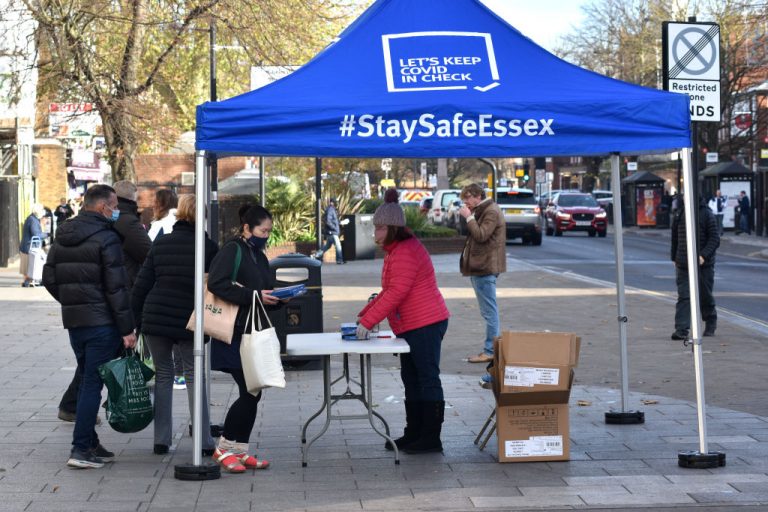A third case of the COVID-19 variant Omicron has been discovered in the UK, triggering fears that the new strain might soon start spreading rapidly. Omicron is said to have the potential to resist the protection provided by COVID-19 vaccines.
The infected individual has a history of traveling to southern Africa where Omicron was first reported. The person is apparently no longer in the UK. During his time in the country, he had visited Westminster in London. Government authorities are carrying out tests at the locations the individual had visited. According to the UK Health Security Agency (UKHSA), it is “very likely” that more Omicron cases will be found in the country very soon.
“Our advanced sequencing capabilities enable us to find variants and take rapid action to limit onward spread… We are continuing our efforts to understand the effect of this variant on transmissibility, severe disease, mortality, antibody response, and vaccine efficacy… It’s critical that anyone with COVID-19 symptoms isolates and gets a PCR test immediately,” Dr. Jenny Harries, chief executive of the UKHSA, told the BBC.
Prof Neil Ferguson, a key government adviser on the pandemic, pointed out that the UK is one of the countries that sees the largest number of flights from South Africa, which increases the possibility of more Omicron infections.
At present, the UK has placed 10 countries from southern Africa on its travel red list. People who have come from these nations in the previous 10 days will have to take PCR tests and self-isolate, health secretary Sajid Javid said on Nov. 27.
Success
You are now signed up for our newsletter
Success
Check your email to complete sign up
Health minister Ed Argar admitted that there could be more cases of Omicron in the coming days and it will take up to three weeks to know more about the new strain. “We don’t know by what speed or by what numbers, so therefore what we’re doing is trying to slow it down. But we can’t stop it… We’re trying to give ourselves the time to understand how it works and how it interacts with the vaccine,” Argar said.
In Essex, where one of the first cases of Omicron infection in the UK was confirmed, students and staff from the Larchwood Primary school are being tested for the variant. One class is now on remote learning.
The county council and the school insisted that though these measures were “unsettling” for parents, they are a necessary precautionary measure. Some cases of Omicron were apparently found at the Trinity Church nearby the school. Though only three cases have been confirmed in the UK, over 75 “probable” cases of Omicron infections have been flagged.
On Nov. 29, the World Health Organization warned that Omicron might pose a very high global risk. “Omicron has an unprecedented number of spike mutations, some of which are concerning for their potential impact on the trajectory of the pandemic… The overall global risk related to the new variant … is assessed as very high,” the WHO stated.
Meanwhile in Scotland, six cases of Omicron infection have been reported. Two cases were in the Clyde and Greater Glasgow region while four cases were reported from Lanarkshire.
According to Scotland’s First Minister Nicola Sturgeon, some of the infected people have no known history of travel to South Africa. Neither have these individuals come into contact with other people who have traveled to the African nation.
“This suggests that there might already be some community transmission of this variant in Scotland… There is no doubt that this presents potentially the most challenging development in the course of the pandemic for quite some time,” Sturgeon said.















